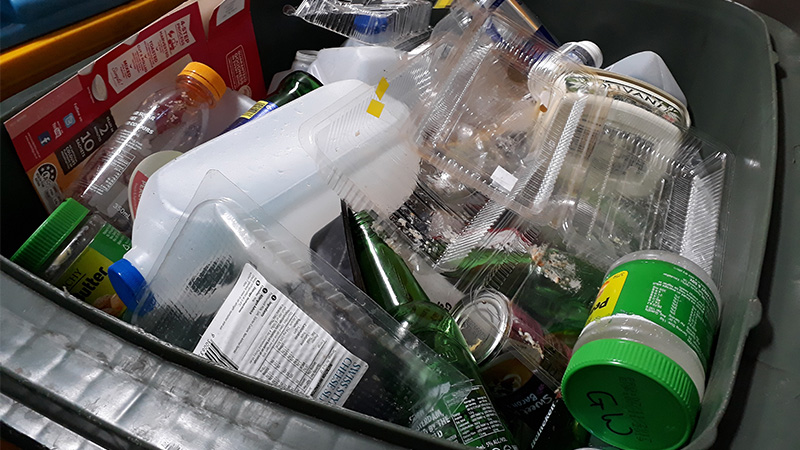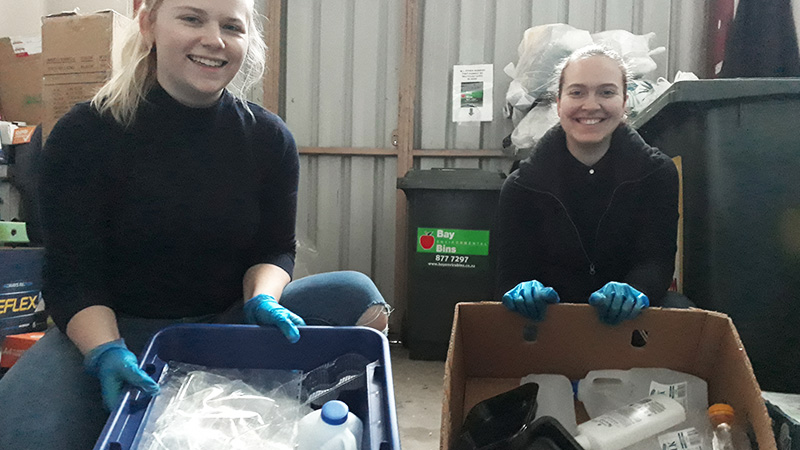Accepting the Plastic Free July challenge
Can you live without plastic? Can you go even just one month without using it?
As it turns out it’s a far more difficult challenge than you might think, even in an office environment where there are minimal household things like groceries around.
Nevertheless, waste reduction and sustainability is what 3R is all about, so we took on the Plastic Free July challenge. What really struck us throughout the challenge was just how difficult it is to avoid plastic, especially if, for example, you want a quick snack or lunch from the supermarket looking – a plastic free lunch proved to be almost Mission Impossible.
Takeaways also proved to be a minefield – in one instance a staff member ensured they bought a meal which involved no plastic packaging, only to find plastic cutlery had been slipped into their paper carry bag by the well-meaning shop keeper.
It showed that a real shift in behaviour is needed – before you go get a coffee or a takeaway meal be sure to take your reusable cup or container. You need to give more thought and planning to what you are going to buy. It’s a little more work, but worth it.
Five lives of July
To liven things up we included a ‘five lives of July’ game in which everyone started with five lives and lost one each time they brought avoidable plastic into the office.
This saw a pretty steep learning curve as lives were lost almost immediately in the first few days. With a $20 meal voucher up for grabs the contest generated a lot of policing amongst us, further helping keep plastic use down.
By the end of the month three emerged victorious with all five lives in tact, and luckily no one had ‘died’, although one came close with only one life left. It was proposed the winners show their good grace by using the voucher to buy morning tea for everyone – sans plastic of course.
Waste audit
“If you don’t measure you can’t monitor,” is something we believe strongly in, so we also carried out an audit of our recycling and waste at the end of June and July. The results were interesting and showed a 40% decrease in plastic from 3.34kg to 2kg. Not a win in terms of being plastic free, but progress nonetheless.
Plastic went from being our second biggest (by weight) recyclable (including paper, tin and glass) to our third. While we didn’t measure volume, it would be safe to say plastic was our biggest in that regard.
Another interesting result showed that in the last week of June there was 0.25kg of recycle plastic in the general waste. It goes to show how confusing plastic recycling can be if even we, who work in the waste and recycling sector, get it wrong sometimes. It was pleasing to see a big reduction in July though, with only a few small items of recyclable plastic in the general rubbish.
However, the rule remains that if you are unsure rather put it in the general rubbish to avoid contaminating the recycling.
Much work still to be done
We recognise that some plastic is unavoidable and necessary for things like food preservation and safety. Plastic milk bottles, for example, made up half of our plastic recycling by weight. It’s something we can’t avoid, even if we bought non-dairy alternatives.
But there is a huge amount of work to be done to solve the plastic recycling crisis we face here and around the world. And with our line of work, it’s a challenge we’re proud to be part of.








